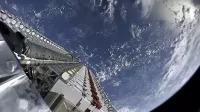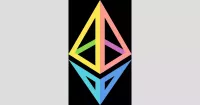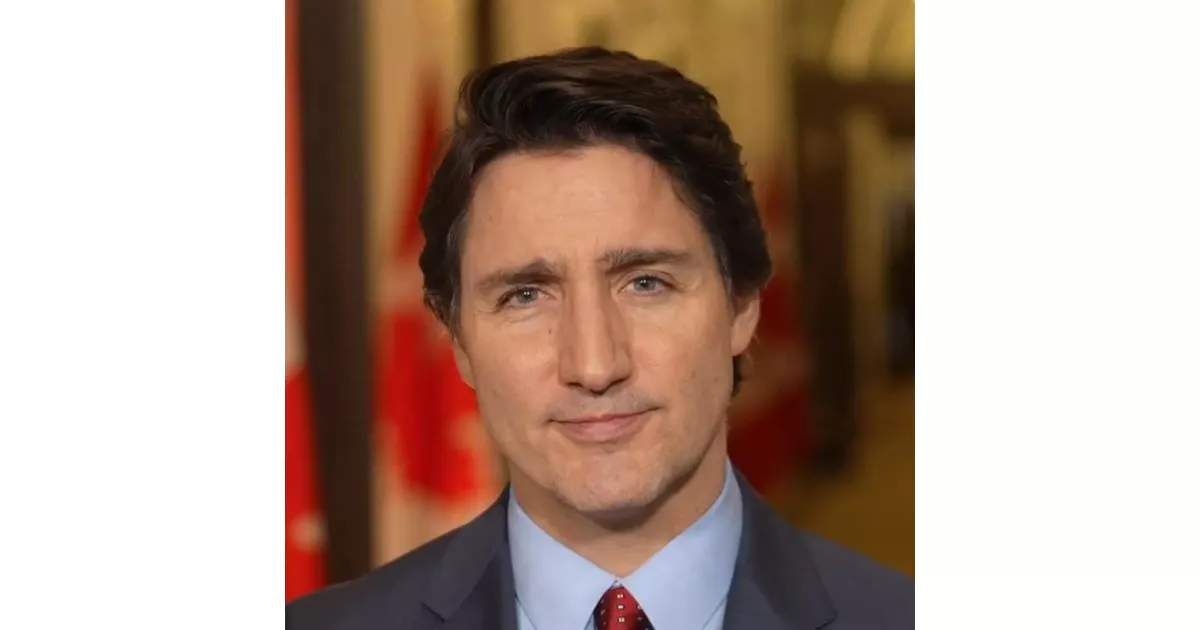A closer look at the most debated and controversial moments involving Justin Trudeau.
Justin Trudeau served as the 23rd Prime Minister of Canada from 2015 to 2025. He led the Liberal Party of Canada from 2013 until his resignation in 2025 and was the Member of Parliament for Papineau from 2008 until 2025. His tenure as Prime Minister was marked by various policy initiatives and challenges, shaping Canada's domestic and international landscape during this period.
August 2000: Kokanee Summit Incident
In August 2000, Justin Trudeau attended the Kokanee Summit and was accused of groping an unnamed female reporter, leading to an apology.
October 2006: Criticized Quebec nationalism
In October 2006, Justin Trudeau criticized Quebec nationalism, describing political nationalism as an "old idea from the 19th century" and "based on a smallness of thought". This was seen as a criticism of Michael Ignatieff's stance on Quebec nationhood.
2010: Comments made to Télé-Québec
In 2010, Justin Trudeau said "Canada isn't doing well right now because it's Albertans who control our community and socio-democratic agenda."
November 2016: Criticism over Fundraising Tactics
In November 2016, Justin Trudeau faced criticism from opposition members regarding his fundraising tactics, which were seen as "cash for access" schemes. Attendees paid upwards of $1500 for access to him and other cabinet members. Trudeau defended his tactics and stated that he was not influenced at the fundraisers.
2016: Visa Requirements Lifted for Mexican Citizens
In 2016, Justin Trudeau lifted visa requirements for Mexican citizens, leading to a surge in asylum claims.
January 2017: "WelcomeToCanada" Twitter Post
In January 2017, Justin Trudeau posted on Twitter, "To those fleeing persecution, terror & war, Canadians will welcome you, regardless of your faith. Diversity is our strength #WelcomeToCanada." This led to an increase in irregular border crossings.
January 2017: Ethics Commissioner Investigation into Bahamas Vacation
In January 2017, the ethics commissioner, Mary Dawson, initiated an investigation into Justin Trudeau concerning a vacation he and his family took to Aga Khan IV's private island in the Bahamas.
December 2017: Ethics Commissioner's Report on Conflict of Interest
In December 2017, the ethics commissioner's report found that Justin Trudeau had violated four provisions of the Conflict of Interest Act, making him the first sitting prime minister to break federal conflict of interest law.
2017: Deterioration of Canada-US Relations
In 2017, after Donald Trump became president, Canada-US relations deteriorated. The Trump administration forced the renegotiation of NAFTA to create the CUSMA. Donald Trump also implemented tariffs on Canadian steel and aluminum, to which Trudeau retaliated by imposing tariffs on American steel, aluminum and a variety of other American products.
February 2018: Controversy over Invitation to Jaspal Atwal
In February 2018, Justin Trudeau's government faced criticism for inviting Khalistani nationalist Jaspal Atwal to the Canadian High Commission's dinner party in Delhi. Atwal had previously been convicted for the shooting and attempted murder of Indian Cabinet minister Malkiat Singh Sidhu in 1986.
2018: Questioned About Groping Incident
In 2018, Justin Trudeau was questioned about the groping incident that occurred in August 2000 but stated he did not remember any negative incidents.
2018: Strained Relationship with Saudi Arabia
In 2018, Saudi Arabia recalled its Canadian ambassador and froze trade with Canada after Canada called for the release of opposition blogger Raif Badawi, straining relations between the two countries.
February 8, 2019: Globe and Mail Report on SNC-Lavalin Affair
On February 8, 2019, The Globe and Mail reported that the Prime Minister's Office allegedly attempted to influence Attorney General Jody Wilson-Raybould regarding the ongoing prosecution of SNC-Lavalin.
March 19, 2019: Shut Down of Justice Committee's Investigation
On March 19, 2019, Liberal committee members voted to shut down the Justice Committee's investigation into the alleged interference in the SNC-Lavalin case.
August 14, 2019: Ethics Commissioner's Report on SNC-Lavalin Affair
On August 14, 2019, the ethics commissioner's final report concluded that Justin Trudeau contravened section 9 of the Conflict of Interest Act in regard to the SNC-Lavalin affair.
September 2019: Brownface and Blackface Scandal
In September 2019, controversial pictures and videos were published showing Justin Trudeau in brownface and blackface, leading to widespread criticism and apologies.
September 18, 2019: Publication of Brownface Photograph
On September 18, 2019, Time magazine published a photograph of Justin Trudeau wearing brownface makeup in the spring of 2001 at an Arabian Nights-themed gala, while he was a teacher at West Point Grey Academy. Trudeau apologized, acknowledging the photo was racist.
2019: Increased Weapons Sales to Saudi Arabia
In 2019, despite a moratorium on export permits, Canada doubled its weapons sales to Saudi Arabia following the killing of journalist Jamal Khashoggi and mounting civilian deaths in Yemen.
July 3, 2020: Ethics Commissioner Announces Investigation into WE Charity Ties
On July 3, 2020, the ethics commissioner announced an investigation into Justin Trudeau's and the government's decision to have WE Charity administer a student grant program. This decision followed complaints from opposition parties about the Trudeau family's ties to WE Charity.
July 16, 2020: Ethics Investigation Expanded to Include Finance Minister Bill Morneau
On July 16, 2020, the ethics commissioner expanded the investigation into the WE Charity controversy to include Finance Minister Bill Morneau, adding another layer to the scrutiny surrounding the government's dealings with the charity.
August 15, 2021: Dissolution of Parliament and Scheduling of Election
On August 15, 2021, Justin Trudeau advised Governor General Mary Simon to dissolve parliament and schedule an election for September 20. The election call coincided with the Fall of Kabul, leading to criticism of Trudeau's handling of the evacuation of Canadian citizens and Afghan allies.
January 15, 2022: Introduction of Vaccine Requirements for Truckers
On January 15, 2022, the Government of Canada introduced COVID-19 vaccine requirements for truckers re-entering the country by land, leading to the Canada convoy protest.
February 14, 2022: Invocation of the Emergencies Act
On February 14, 2022, Justin Trudeau invoked the Emergencies Act for the first time since 1988 in response to the public order emergency caused by the Freedom Convoy demonstrations in Ottawa.
February 23, 2022: Revocation of Emergency Declaration
On February 23, 2022, Justin Trudeau announced that the federal government would revoke the emergency declaration, and the governor general signed a proclamation revoking it later that day.
February 17, 2023: Judicial Inquiry on Emergencies Act
On February 17, 2023, a judicial inquiry into the use of the Emergencies Act concluded that the Trudeau government met the legal threshold required to invoke the act.
March 2023: Closure of Roxham Road
In March 2023, Roxham Road was closed due to increased strain on services in Quebec and Ontario. The decision to close Roxham Road was also influenced by the new terms of the Canada–United States Safe Third Country Agreement (STCA) had been arranged the previous year.
May 2023: Report on Election Interference
In May 2023, David Johnston delivered a report on election interference, describing China's interference as a danger to Canadian democracy. The report also stated that some of the media reports were partially incorrect, and improvements were needed to protect members of Parliament.
September 2023: Allegations of Indian Government Involvement in Killing
In September 2023, Justin Trudeau stated that the Canadian government had "credible intelligence" indicating the Indian government's involvement in the killing of Canadian citizen Hardeep Singh Nijjar, leading to a rapid decline in Canada-India relations.
September 22, 2023: Hunka Recognition Scandal
On September 22, 2023, Yaroslav Hunka, a Ukrainian Canadian who fought in the SS Division Galicia during WWII, was invited to the House of Commons and recognized by Speaker Anthony Rota, receiving standing ovations from members of parliament, including Justin Trudeau. The incident drew widespread condemnation and was leveraged by Russia to justify its war in Ukraine. Trudeau apologized for the mistake that deeply embarrassed parliament and Canada.
2023: Increase in Asylum Claims
In 2023, asylum claims by Mexicans grew to 24,000 since visa requirements were lifted in 2016.
May 2024: Preliminary Report on Foreign Interference
In May 2024, the Public Inquiry into Foreign Interference issued its preliminary report. The inquiry found that China engaged in foreign interference in both the 2019 and 2021 elections, but the interference did not affect the ultimate result of either election.
June 2024: Government Plans to Appeal Emergencies Act Ruling
As of June 2024, the federal government planned to appeal the ruling that the invocation of the Emergencies Act to end the 2022 convoy protest was "not justified" and infringed on Charter rights.
November 20, 2024: Alberta MP Randy Boissonnault Resigns Amid Allegations
On November 20, 2024, Alberta MP Randy Boissonnault resigned following allegations of running a business seeking federal contracts and falsely claiming Indigenous status.
2024: Reinstatement of Visas and Restrictions
In 2024, visas and some restrictions for Mexican citizens were reinstated following a surge in asylum claims that began after visa requirements were lifted in 2016.
January 2025: Deterioration of Canada-US Relations
In January 2025, Canada-US relations deteriorated again following Donald Trump's second inauguration.
March 4, 2025: Trump Imposes Tariffs on Canadian Exports and Energy
On March 4, 2025, President Trump imposed 25% tariffs on Canadian exports and 10% tariffs on Canadian energy products, with an automotive industry exemption set to expire on April 2, further straining Canada-US relations.
March 5, 2025: Canada Announces Countermeasures
On March 5, 2025, in retaliation to U.S. tariffs, Trudeau announced Canada would impose 25% tariffs on $30 billion worth of U.S. goods, with retaliatory tariffs set to increase to $155 billion within 21 days.
Mentioned in this timeline

Joe Biden is an American politician who served as the...
Saudi Arabia officially the Kingdom of Saudi Arabia KSA is...
Nova Scotia is a province in the Maritimes region of...
Pfizer Inc is a multinational pharmaceutical and biotechnology corporation headquartered...
India officially the Republic of India is a South Asian...
China officially the People's Republic of China is an East...
Trending
22 minutes ago Tim NeCastro Announces Retirement as Erie Insurance CEO After 10 Years

2 hours ago Apple MacBook Pro: Touchscreen, Dynamic Island, and New Interface Coming Soon.

2 hours ago Microsoft and SpaceX Starlink Partner to Empower Global Community Internet and AI Economy
23 minutes ago Trump Announces Energy Deals and Rate Payer Protection Pledges at SOTU
2 hours ago Whitefox & Fluid Quip collaborate; Low-carbon ethanol boosted; Indoor plants aid climate resilience.

1 hour ago Ethereum Price Faces Resistance at $1,950 Amidst Market Repricing Concerns.
Popular

Jesse Jackson is an American civil rights activist politician and...

Susan Rice is an American diplomat and public official prominent...

Barack Obama the th U S President - was the...

Michael Joseph Jackson the King of Pop was a highly...

XXXTentacion born Jahseh Dwayne Ricardo Onfroy was a controversial yet...

Bernie Sanders is a prominent American politician currently serving as...
